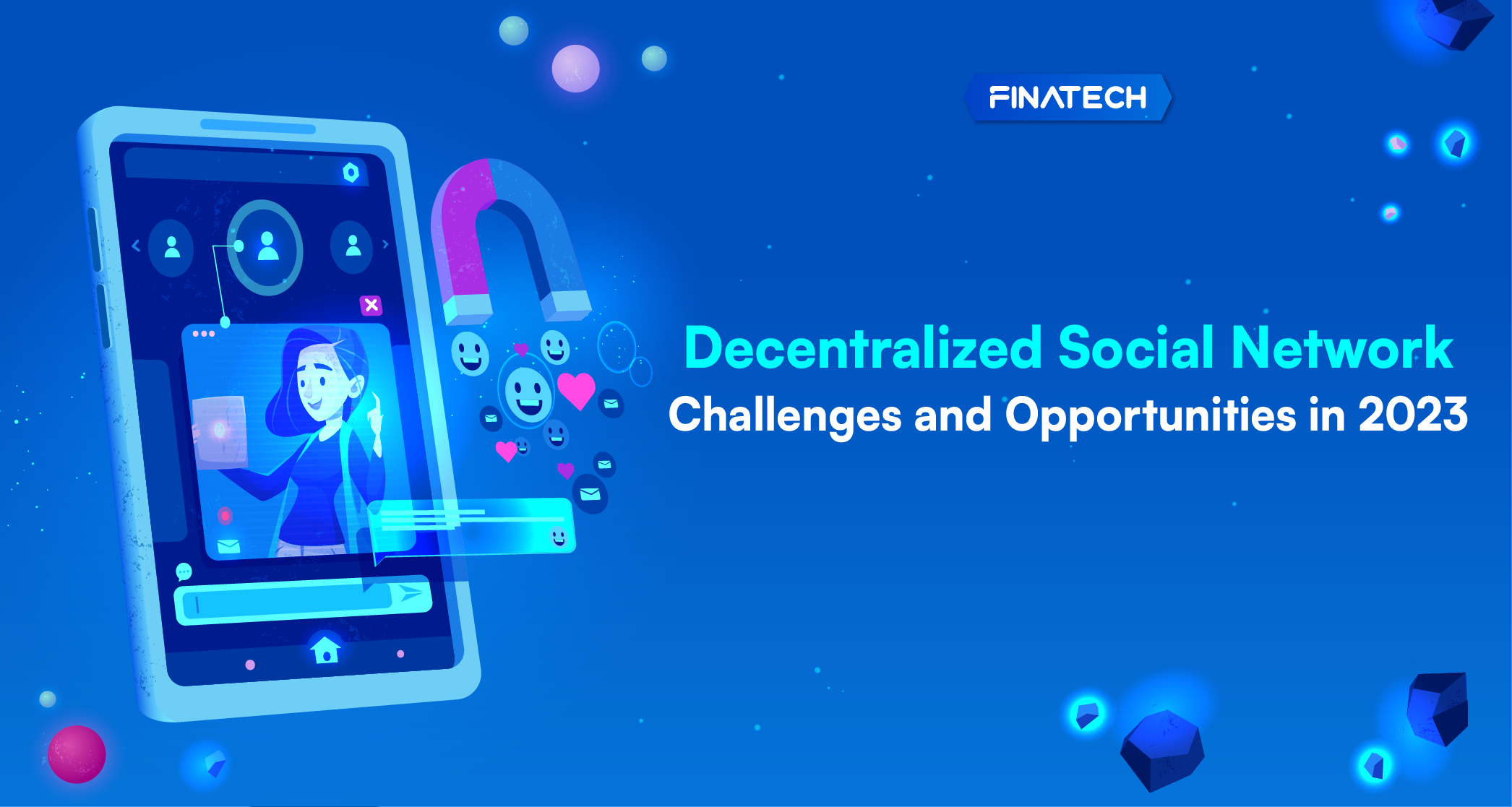Building a Decentralized Social Network: Challenges and Opportunities
Blockchain Web3 Thursday, March 16, 2023
Blockchain Web3 Thursday, March 16, 2023

In recent times, the rise of blockchain technology has enabled the creation of decentralized social networks. These networks offer users greater control over their data and privacy, while also promoting open and transparent community governance.
However, building a decentralized social network presents several challenges, including technical scalability, governance, and regulatory compliance.
At Finatech, we specialize in blockchain web3 development and have extensive experience in creating decentralized applications for a wide range of clients. We believe that decentralized social networks hold great potential for the future of social media and are excited to help our clients explore this emerging field.
A decentralized social network is a social media platform that is not controlled by a central authority or corporation. Instead, it is built on a decentralized infrastructure, which means that users have more control over their data and can participate in the governance of the network.
In a decentralized social network, users have the ability to connect directly with one another without having to rely on a central authority to facilitate their interactions. This can be achieved through the use of blockchain technology or other distributed technologies, which enable users to create and manage their own digital identities and interact with others in a peer-to-peer manner.
Decentralized social networks are often designed to be more transparent and secure than centralized networks, as they give users greater control over their data and enable them to protect their privacy. They also have the potential to be more resilient to censorship and data breaches, as there is no central point of control that can be targeted by malicious actors.
One of the main challenges in building a decentralized social network is technical scalability. As the number of users and interactions within the network grows, it becomes increasingly difficult to ensure that the network can handle the load. Interoperability between different blockchain protocols can also be a challenge, as users may need to interact with multiple blockchains to use the network.
Another key challenge is governance. In a decentralized social network, decision-making is often done through community consensus rather than a centralized authority. This can lead to issues such as conflicting opinions and difficulty in reaching consensus on important decisions.
Finally, regulatory compliance is a challenge that must be taken seriously. Decentralized social networks are subject to the same legal and regulatory requirements as centralized social networks, including data protection and anti-money laundering regulations.
Despite the challenges, building a decentralized social network offers several opportunities. One of the key benefits is greater user control over their data and privacy. In a decentralized network, users can control their own data and choose who to share it with, rather than relying on a centralized entity to manage their information.
Open and transparent community governance is another opportunity. In a decentralized social network, all people have equal rights, decision-making is done by consensus of the community. This creates a more democratic and fair system of governance.
Incentivization through tokenization and staking is also possible in a decentralized social network. By rewarding users for participating in the network, tokenization can create a more engaged and active user base.
Finally, decentralized social networks are more secure and resilient against centralized censorship and attacks. Because the network is distributed across multiple nodes, it is much more difficult for a single entity to shut down or manipulate the network.
There are already several successful decentralized social media in existence, such as Mastodon and Diaspora. Mastodon is a decentralized microblogging platform that allows users to create and manage their own communities, while Diaspora is a decentralized social network that focuses on privacy and data ownership.
Both networks use blockchain technology to create a distributed network of nodes, with decision-making done through community consensus. Mastodon uses a token-based reward system to incentivize users, while Diaspora relies on donations to fund development.
While both networks have been successful in creating a decentralized social network, they also face challenges such as scalability and adoption. However, their success shows that there is great potential for decentralized social networks in the future.
Building a decentralized social network presents a number of challenges, but also offers many opportunities for innovation and growth. As blockchain web3 development continues to evolve, we expect to see more companies and entrepreneurs exploring this emerging field.